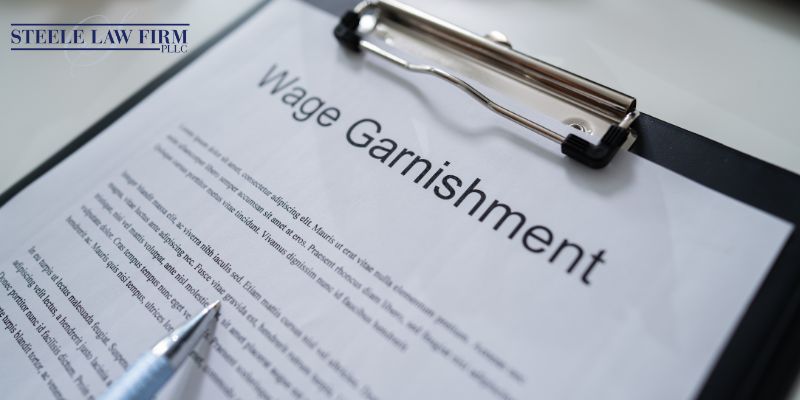When you are struggling financially, it can be detrimental for a debt collector to garnish your wages to pay for debts you can’t afford at the moment. One of the most effective ways to fight wage garnishment is to file for Chapter 7 bankruptcy and start over financially. There are significant benefits to bankruptcy but also certain disadvantages, so it is important to understand wage garnishment and Texas bankruptcy law as it applies to you.
Wage garnishment is a consequence of not paying back the debts you owe. Creditors can obtain a court order to have your employer withhold a specific amount from your paychecks to pay what you owe.
It is possible to have wages garnished for credit card debt, medical bills, federal student loans, child support, spousal support, and taxes. By law, creditors have the right to take funds directly from your paychecks without a court order for unpaid taxes, child support, spousal support, and federal student loans.
Under Texas law, creditors cannot garnish your wages for anything other than student loans, taxes, child support, and spousal support. However, there are other ways a creditor or debt collector can collect funds, such as getting an order from a judge to garnish your bank account. This would allow them to take the money directly from your account after it is deposited. If the amount in your account is less than what you owe, the account may be frozen until your debt is completely paid off.

There are federal and state limits to the amount of money a creditor can collect from you based on the type of debt you have.
If you are facing wage garnishment, you may be able to file for Chapter 7 bankruptcy. Bankruptcy could stop all garnishment and keep creditors from coming after you for the money you owe.
When you file for bankruptcy, the court puts an automatic stay on your assets and property so they cannot be used to satisfy a debt for the duration of the case. Once the case is done, many of your debts will have been discharged. Filing for bankruptcy may not stop garnishment for debts such as taxes, child support, and spousal support.
To file for Chapter 7 bankruptcy, you must financially qualify via the means test. This is based not only on your income but also on the number of expenses you have. Even if you have a high income, you may be able to qualify if you also have high expenses.
As soon as you file for Chapter 7 bankruptcy, the automatic stay period begins. All creditors are given notice to cease all forms of collection during that time. The court appoints a trustee to use some of your property to pay back creditors. In Texas, there are some exemptions to protect much of your property.
The automatic stay typically ends when you get a bankruptcy discharge or when your case is dismissed. If you are not given a discharge, it may be because you did not qualify. Creditors will be free to continue garnishment.
A. To file for Chapter 7 bankruptcy, you must pass the means test. The income limit for Chapter 7 depends on your income as well as how many people are in your household. If you live in a single household, the annual income limit to file is around $60,000.
A: Texas is fairly generous when it comes to what can be exempt from bankruptcy. Assets that are exempt in Texas Chapter 7 include:
A: Filing for Chapter 7 bankruptcy in Texas can cost around $338 for filing alone. If you are under the Texas fee poverty guidelines, it may be possible for you to have the filing fee waived. Hiring an attorney may come at an additional cost, which is generally dependent on the attorney’s fees.
A: Whether or not garnishment is better than bankruptcy depends on what your personal financial situation is. Garnishment allows you to satisfy specific debts using your disposable income.
If you do not have much disposable income, this could keep you from maintaining certain living expenses. Bankruptcy can discharge some of your debts, but it will have a significant effect on your credit score and remain on your credit report for up to ten years. You should discuss the pros and cons of both with a bankruptcy attorney.
Dealing with the implications of wage garnishment and bankruptcy can be complicated and overwhelming. Contact Steele Law Firm, PLLC, for a consultation today. You can receive the help you need from an experienced bankruptcy attorney.




